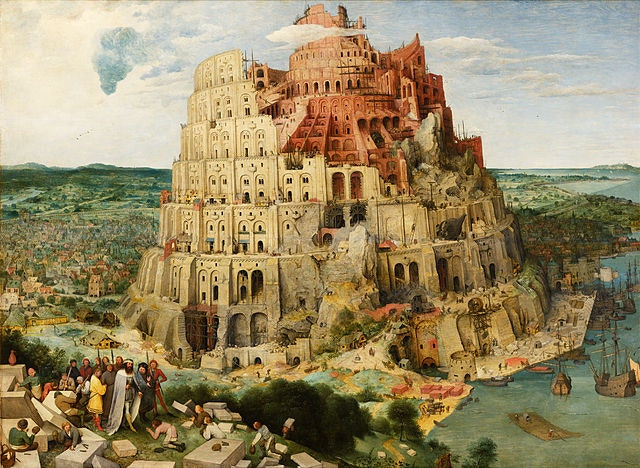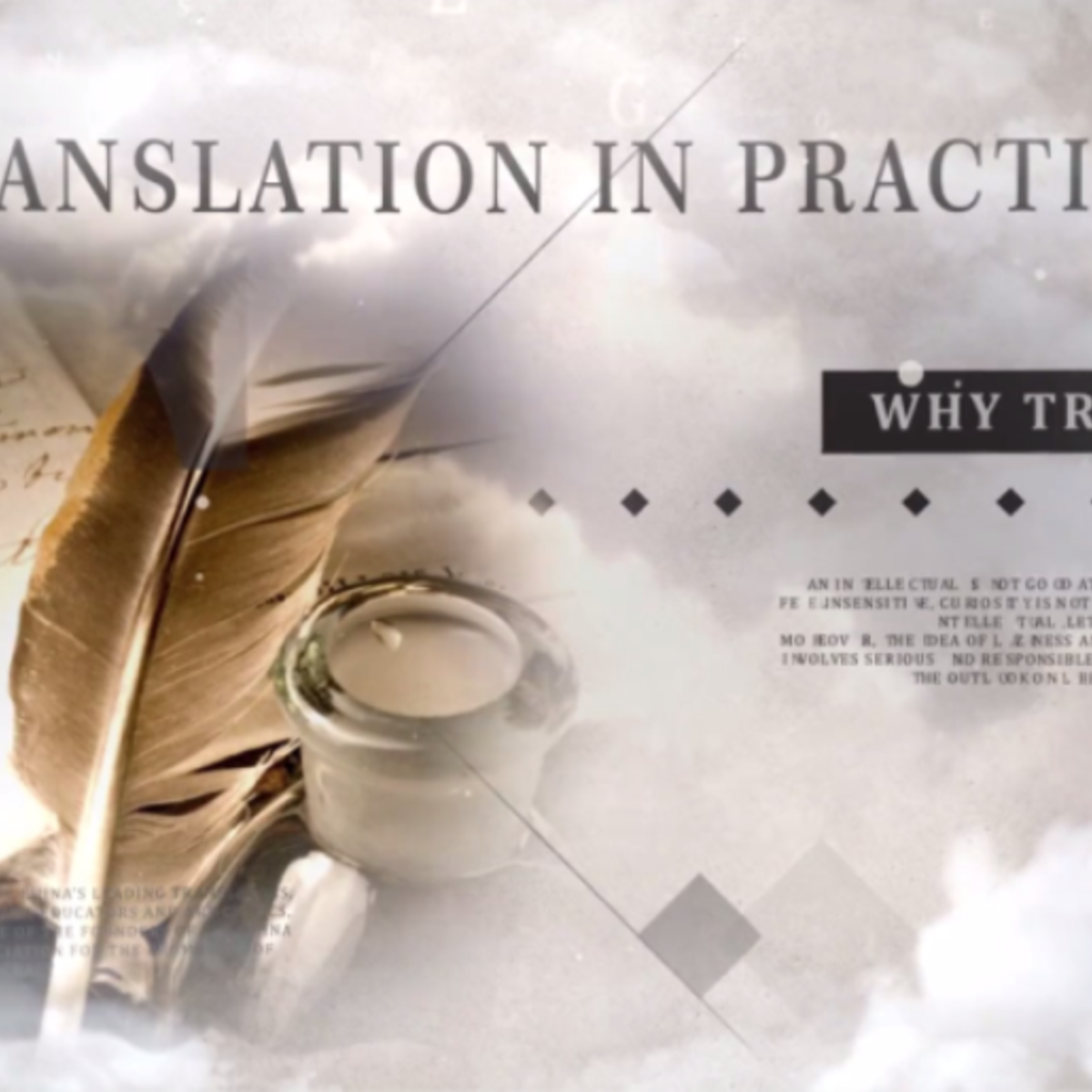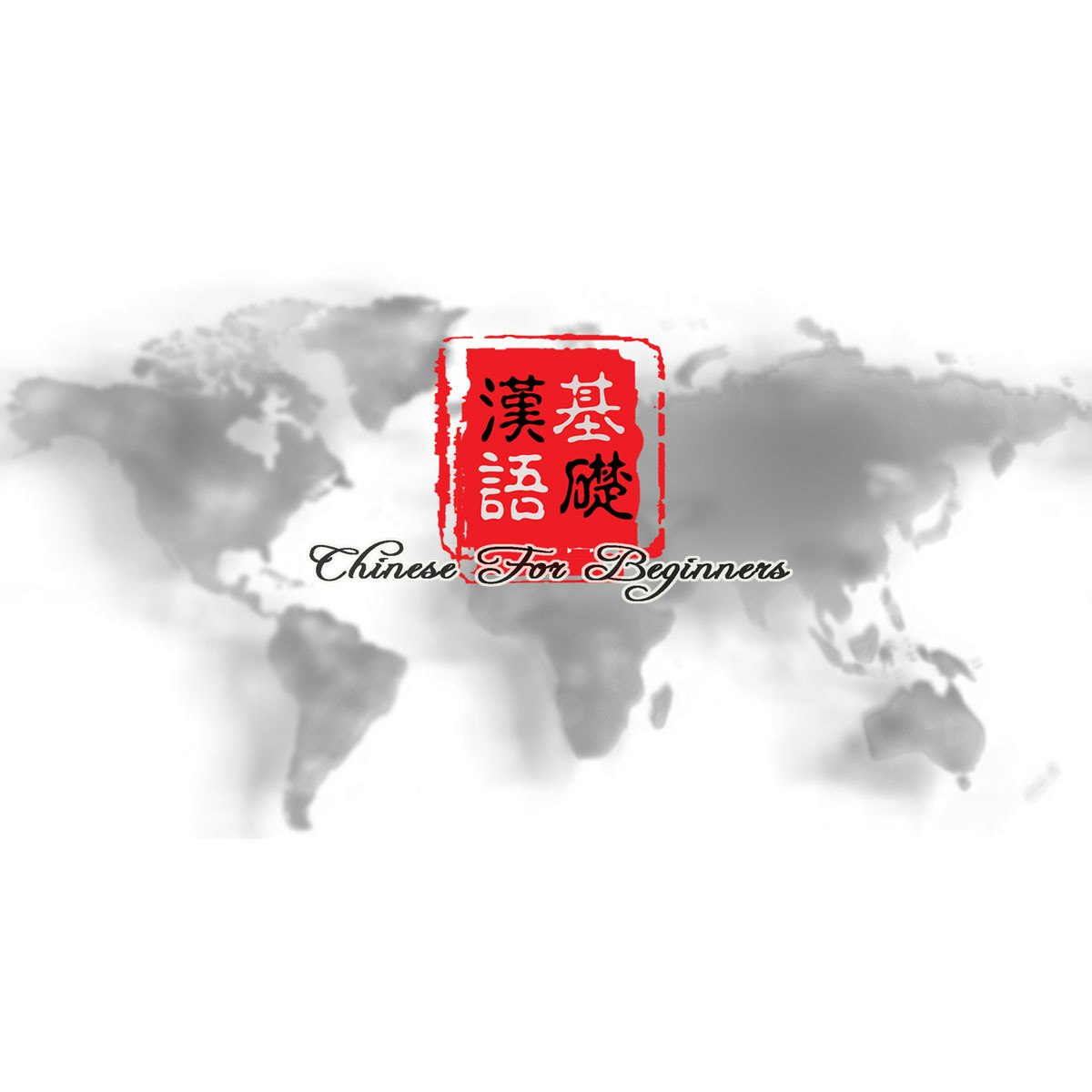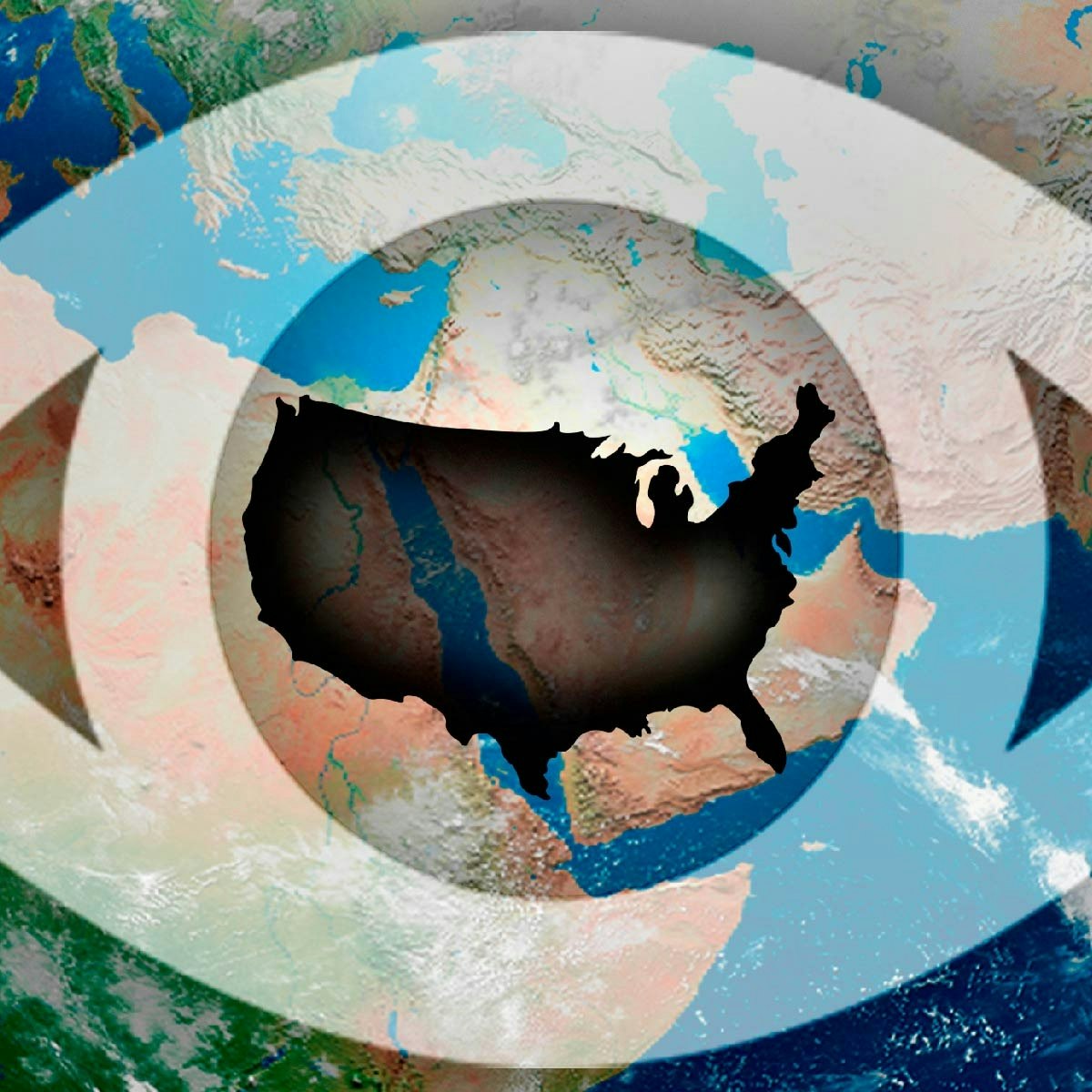Translator
Translator: Bridging Worlds Through Language
A Translator is a professional linguist who converts written text from one language (the source language) to another (the target language). This involves more than simply replacing words; it requires a deep understanding of both languages, their cultural contexts, nuances, and the subject matter being translated. The goal is to produce a target text that accurately conveys the meaning, tone, and intent of the original source text, while reading naturally to a native speaker of the target language.
Working as a translator can be intellectually stimulating, offering the chance to delve into diverse subjects and constantly learn. It plays a crucial role in global communication, enabling businesses, governments, and individuals to connect across linguistic divides. Many find deep satisfaction in facilitating understanding and making information accessible to wider audiences through their linguistic expertise.
Core Responsibilities of a Translator
The daily life of a translator involves a fascinating blend of linguistic skill, subject matter expertise, and meticulous attention to detail. Understanding the core responsibilities provides insight into the profession's demands and rewards.
Text Analysis and Cultural Adaptation
Before translating, a translator must thoroughly analyze the source text. This involves understanding not just the words, but the underlying meaning, tone, style, and intended audience. They identify potential ambiguities, cultural references, or idiomatic expressions that might not translate directly.
Cultural adaptation, or localization, is equally critical. A concept, joke, or reference that makes sense in one culture might be confusing or even offensive in another. The translator must skillfully adapt the content so it resonates appropriately with the target audience, while preserving the original message's integrity. This requires significant cultural sensitivity and awareness.
Imagine translating an advertisement for a new snack food. The source text might use a popular local celebrity's catchphrase that is completely unknown in the target country. A direct translation would fall flat. The translator needs to find an equivalent way to convey the same excitement or humor using references or expressions that are relevant and appealing to the target culture.
Specialization Areas
Many translators choose to specialize in specific fields. This allows them to develop deep subject matter expertise, which is crucial for accurately translating technical or specialized content. Common areas include legal translation (contracts, patents), medical translation (patient records, research papers), financial translation (reports, prospectuses), technical translation (manuals, specifications), and literary translation (books, poetry).
Specialization often requires additional training or background knowledge in the chosen field. For instance, a legal translator needs familiarity with legal systems and terminology in both source and target countries. Literary translators need a strong grasp of literary devices and styles.
Choosing a specialization can significantly impact a translator's career path and earning potential. High-demand fields like medical or legal translation often command higher rates due to the expertise required and the critical nature of the content.
Understanding the foundations of language and culture is key. These courses offer insights into linguistics and cultural contexts relevant to translation.
Further reading can deepen understanding of translation theory and practice.
Quality Assurance Processes
Ensuring the accuracy and quality of the translation is paramount. Translators employ various quality assurance (QA) processes. This typically involves careful proofreading and editing of their own work to catch errors in grammar, spelling, punctuation, and terminology.
In many professional settings, translations undergo review by a second linguist (an editor or proofreader). This provides an objective check for accuracy, consistency, style, and adherence to project requirements or style guides. Feedback from editors helps translators refine their skills.
Technology also plays a role in QA. Tools can help check for consistency in terminology, missed segments, or formatting issues. However, human judgment remains crucial for evaluating nuance, style, and cultural appropriateness.
Client Communication and Project Management
Translators, especially freelancers, often manage their own projects. This involves clear communication with clients to understand project scope, requirements, deadlines, and target audience. Asking clarifying questions about the source text or project goals is essential for a successful outcome.
Effective project management includes organizing workflow, managing deadlines, maintaining records, and handling invoicing. Freelancers need to market their services, negotiate rates, and build client relationships. Even in-house translators often interact with project managers or different departments, requiring good communication and organizational skills.
Time management is critical, as translators often juggle multiple projects with varying deadlines. Proficiency with project management tools or techniques can be highly beneficial.
Formal Education Pathways
While passion for languages is essential, a structured educational background provides the theoretical knowledge and practical skills needed for a successful translation career. Various pathways can lead to becoming a professional translator.
Relevant Undergraduate Degrees
A bachelor's degree is often considered the minimum educational requirement. While a degree specifically in translation is ideal, degrees in related fields are also highly valuable. Majors in Languages (the specific source or target languages), Linguistics, or Comparative Literature provide strong foundations.
These programs develop advanced language proficiency, analytical skills, and cultural understanding. Coursework often includes grammar, syntax, phonetics, literature analysis, and cultural studies, all beneficial for translation work.
Degrees in specialized fields (like law, medicine, engineering, or finance) combined with high language proficiency can also be an excellent pathway, particularly for those aiming to specialize in technical translation areas.
Specialized Translation Master's Programs
For those seeking advanced training, a Master's degree in Translation Studies is a highly recommended option. These programs offer specialized coursework in translation theory, methodology, terminology management, localization, and the use of translation technologies (like CAT tools).
Many master's programs allow students to specialize in specific language pairs or subject areas (e.g., legal, medical, literary translation). They often include practical translation workshops, internships, or capstone projects, providing real-world experience.
An advanced degree can enhance credibility, open doors to more specialized or higher-paying roles, and provide a deeper theoretical understanding of the profession. Some universities offer graduate certificates in translation as a shorter alternative.
This course provides foundational techniques for translating between English and Chinese.
This book delves into the theoretical aspects of translation.
Certification Programs
Professional certification can significantly boost a translator's credentials and marketability. Organizations like the American Translators Association (ATA) in the US or the Chartered Institute of Linguists (CIOL) in the UK offer rigorous certification exams.
Passing these exams demonstrates a high level of professional competence in a specific language pair and direction (e.g., Spanish to English). Certification often requires several years of experience and involves tests assessing translation skills, language proficiency, and awareness of professional ethics.
While not always mandatory, certification is highly regarded by many employers and clients, especially for freelance work or specialized fields. It serves as a recognized benchmark of quality in the industry. Research professional bodies relevant to your country or language pair for specific certification options.
Importance of Bilingual/Multilingual Education
Underpinning any formal pathway is the fundamental requirement of exceptional proficiency in at least two languages. This goes beyond conversational fluency; it requires a deep, nuanced understanding of grammar, vocabulary, syntax, register, and cultural context in both the source and target languages.
Early exposure to multiple languages through bilingual education or growing up in a multilingual environment can provide a strong advantage. However, dedicated study and immersion are crucial for achieving the high level of mastery needed for professional translation.
Continuous learning is essential. Languages evolve, so translators must stay updated on usage trends, new terminology, and cultural shifts in their working languages. Extensive reading, travel, and interaction with native speakers are vital for maintaining proficiency.
Online courses offer flexible ways to build and maintain language proficiency across various languages.
These books offer insights into specific languages and their cultural contexts.
Essential Skills for Modern Translators
The translation landscape is constantly evolving, influenced by technology and globalization. Success requires a blend of traditional linguistic skills and adaptability to modern tools and workflows.
Linguistic Precision and Cultural Sensitivity
At its core, translation demands impeccable command of both source and target languages. This includes mastery of grammar, syntax, spelling, punctuation, and a rich vocabulary. Translators must capture subtle nuances, tone, and register accurately.
Cultural sensitivity is just as vital. Translators act as cultural mediators, ensuring the translated text is not only linguistically correct but also culturally appropriate for the target audience. This involves understanding social norms, values, beliefs, and potential sensitivities in both cultures.
Misinterpreting cultural context can lead to misunderstandings or offense, potentially damaging a client's reputation. Therefore, deep cultural knowledge and empathy are indispensable skills for any translator.
Developing cultural understanding is an ongoing process. These courses explore cultural dimensions relevant to language.
This book examines gender issues in translation, highlighting cultural nuances.
CAT Tool Proficiency
Computer-Assisted Translation (CAT) tools are standard in the industry. These are distinct from machine translation; CAT tools are software applications that help human translators work more efficiently and consistently. Popular examples include SDL Trados Studio, MemoQ, and Wordfast.
CAT tools segment text, store previous translations in a Translation Memory (TM), and suggest matches for similar new segments. They also facilitate terminology management, quality checks, and project collaboration. Proficiency in one or more major CAT tools is often a requirement for professional translation jobs.
Learning to use these tools effectively involves understanding segmentation rules, TM management, termbase creation, and quality assurance features. Many online tutorials and courses are available for specific CAT tools.
Terminology Management Strategies
Consistency in terminology is crucial, especially in technical, legal, or medical translation. Translators must use the correct terms consistently throughout a document and across related projects. This requires effective terminology management.
This involves researching and verifying specialized terms using dictionaries, glossaries, style guides, and subject matter experts. Translators often create and maintain project-specific or client-specific termbases (databases of approved terms and their translations).
CAT tools often include features for termbase integration, automatically suggesting approved terms as the translator works. Strong research skills and meticulous attention to detail are essential for accurate terminology management.
Adaptability to Emerging Technologies
The field is rapidly changing due to advancements in Artificial Intelligence (AI) and Machine Translation (MT), particularly Neural Machine Translation (NMT). While MT cannot yet replace human translators for quality work, it is increasingly integrated into workflows.
Modern translators need to be adaptable and willing to learn new technologies. This may involve working with MT output in a process called post-editing (MTPE), where the translator revises machine-generated text to ensure accuracy, fluency, and appropriateness.
Staying informed about AI developments, new translation tools, and evolving industry best practices is crucial for career longevity. Embracing technology as an aid, rather than a threat, allows translators to enhance their productivity and focus on higher-level linguistic and cultural challenges.
This course explores using cloud-based translation APIs, a key emerging technology.
Career Progression and Specialization
A career in translation offers various paths for growth and development. Progression often involves gaining experience, specializing, and potentially moving into related roles.
Entry-Level vs. Senior Roles
Entry-level translators typically start with less complex texts, often working under the supervision of senior translators or editors. They focus on building practical skills, learning industry tools, and understanding quality standards. Roles might include junior translator, translation intern, or proofreader.
With experience, translators take on more complex projects, develop specializations, and work more independently. Senior roles can include lead translator, editor, reviewer, terminologist, or quality assurance specialist. These positions often involve mentoring junior translators, managing terminology, or ensuring overall translation quality.
Progression requires continuous learning, honing translation skills, developing subject matter expertise, and building a strong professional reputation for quality and reliability.
Freelance vs. In-house Career Paths
Translators can choose between working as freelancers or as in-house employees for companies or agencies. Freelancing offers flexibility in terms of work hours, location, and project choice. However, it requires strong self-discipline, business acumen (marketing, client management, invoicing), and income can be variable.
In-house positions provide a stable salary, benefits, and a team environment. Translators typically work on projects for a single company or a range of clients managed by an agency. This path may offer clearer opportunities for promotion into management or specialized roles within the organization.
Some translators combine both, working part-time in-house while taking on freelance projects. The best path depends on individual preferences regarding stability, autonomy, and work-life balance.
Consider exploring related careers that leverage linguistic and cross-cultural skills.
Specialization Economic Impacts
Choosing a specialization can significantly influence earning potential. Fields requiring deep technical knowledge, such as legal, medical, financial, or patent translation, often command higher rates due to the expertise needed and the high stakes involved in accuracy.
Translating between less common language pairs (e.g., Norwegian to Japanese) can also be more lucrative than common pairs (e.g., Spanish to English) due to lower supply of qualified translators. However, the volume of work might be smaller.
Literary translation, while culturally valuable, often pays less than technical fields. Building a reputation in a specific niche allows translators to market themselves as experts and potentially charge premium rates.
These courses focus on specific language skills relevant to career advancement or specialization.
Leadership Opportunities
Experienced translators can progress into leadership roles. Within translation agencies or large companies, opportunities exist for positions like Translation Project Manager, Vendor Manager, Quality Manager, or Team Lead.
These roles involve overseeing translation projects, managing teams of translators (in-house or freelance), ensuring quality standards, managing client relationships, or handling budgets and resources. Strong organizational, communication, and leadership skills are essential.
Some senior translators transition into consultancy, training, or academic roles, sharing their expertise with the next generation or advising companies on language strategies. Entrepreneurial translators might start their own translation agencies.
This book discusses translation within a globalized context, relevant for leadership perspectives.
Technological Impact on Translation
Technology, particularly Artificial Intelligence (AI) and Machine Translation (MT), is profoundly reshaping the translation industry. Understanding these changes is crucial for anyone considering or pursuing a career in this field.
Machine Translation Integration
Neural Machine Translation (NMT) systems have become increasingly sophisticated, capable of producing more fluent and accurate translations than older statistical methods. While still imperfect, NMT is now widely used in the industry.
Instead of replacing human translators, MT is often integrated into workflows as a productivity tool. Translators increasingly engage in Machine Translation Post-Editing (MTPE), where they review and correct MT output to meet quality standards. This requires specific skills in identifying and correcting MT errors efficiently.
The demand for skilled post-editors is growing. Translators who adapt to this new reality and develop MTPE skills are likely to find more opportunities.
Explore the fundamentals of how cloud-based translation APIs work.
These books provide context on statistical MT and the role of machine learning.
AI-Assisted Workflow Tools
Beyond MT, AI powers various tools that assist translators. These include advanced terminology management systems, quality assurance checkers that identify potential errors or inconsistencies, predictive typing features within CAT tools, and even tools that help automate project management tasks.
These AI-driven tools aim to augment the translator's capabilities, handling repetitive tasks and freeing up time for more complex linguistic challenges requiring human creativity and cultural judgment. Familiarity with these evolving tools enhances efficiency and competitiveness.
The integration of AI means translators need to be comfortable working alongside intelligent systems, understanding their strengths and limitations.
Ethical Considerations in Tech Adoption
The increasing use of MT and AI raises ethical questions. Issues include data privacy (sensitive information processed by MT engines), potential bias embedded in AI algorithms reflecting societal prejudices, fair compensation for post-editing work, and the ownership of translation memories generated using MT.
Translators must be aware of these ethical dimensions and advocate for responsible technology use. Professional organizations are developing guidelines and best practices for navigating these complex issues.
Maintaining transparency with clients about the use of MT and ensuring data security are crucial ethical responsibilities in the modern translation landscape.
Future-Proofing Translation Careers
While technology automates some tasks, the need for skilled human translators remains, particularly for high-quality, nuanced, or creative content. Future-proofing a translation career involves adapting to technological changes and focusing on areas where human expertise is irreplaceable.
This includes specializing in complex fields (legal, medical, literary), focusing on less common language pairs, developing strong post-editing skills, honing cultural adaptation abilities (transcreation), and mastering client communication and project management.
Lifelong learning, staying updated on industry trends, and embracing new tools are essential. Translators who combine linguistic excellence with technological savvy and specialized knowledge will continue to be in demand.
Financial Considerations and Market Trends
Understanding the economic landscape of the translation industry is vital for making informed career decisions. Market size, pricing models, and demand trends all play a role.
Global Market Size and Growth Projections
The global language services market, which includes translation, interpretation, and localization, is a multi-billion dollar industry. Driven by globalization, international trade, and the digital content explosion, the demand for translation services continues to grow.
Market research firms consistently project strong growth for the industry in the coming years. According to the U.S. Bureau of Labor Statistics, employment of interpreters and translators is projected to grow 20 percent from 2021 to 2031, much faster than the average for all occupations. This suggests robust opportunities for skilled professionals.
Factors contributing to growth include the need for website and software localization, multilingual customer support, and compliance with regulations requiring translated documentation in various sectors.
Pricing Models
Translators use various pricing models. The most common is per-word pricing, where the cost is calculated based on the number of words in the source text. Per-hour pricing is sometimes used for tasks like editing, proofreading, or complex projects where word count isn't a suitable metric.
Project-based pricing, a fixed fee for the entire project, is also common, especially for larger or well-defined tasks. Rates vary significantly based on factors like language pair, subject matter specialization, text complexity, deadline urgency, and the translator's experience and credentials.
Freelancers need to research industry standards and determine competitive yet sustainable rates for their services. Agencies typically have set rates for their translators.
Emerging Language Pair Demands
Demand fluctuates based on global economic and geopolitical trends. While common pairs like English-Spanish or English-French always have volume, emerging markets can drive demand for other languages. Languages of fast-growing economies in Asia, Africa, or Latin America may see increased demand.
Technological advancements also influence demand. For example, the need to translate content related to AI, renewable energy, or biotechnology creates opportunities for translators specializing in these fields and the relevant languages.
Staying informed about global trends through industry publications and professional networks can help translators identify potentially high-demand language pairs or specializations.
Developing proficiency in less commonly taught languages can open niche opportunities.
Impact of Globalization and Remote Work
Globalization fuels the need for translation as businesses expand internationally. The rise of remote work has further globalized the translation workforce, allowing translators to work for clients anywhere in the world.
This creates more opportunities but also increases competition. Translators now compete in a global marketplace, making specialization, quality, and professionalism even more critical for standing out.
Remote work requires translators to be proficient with digital communication tools, project management software, and secure file transfer methods. It also necessitates strong self-management skills.
This book explores the intersection of translation and global trends.
Ethical Challenges in Translation
Like any profession, translation comes with its unique set of ethical considerations. Navigating these challenges responsibly is crucial for maintaining professional integrity and client trust.
Confidentiality and Data Security
Translators often handle sensitive or confidential information, such as legal documents, medical records, or proprietary business plans. Maintaining strict confidentiality is a fundamental ethical obligation.
This involves signing Non-Disclosure Agreements (NDAs) when required and implementing robust data security practices. Translators must ensure secure storage and transmission of files, protect client information from unauthorized access, and be cautious when using cloud-based tools or MT platforms with sensitive data.
Breaches of confidentiality can have serious legal and reputational consequences for both the translator and the client.
Cultural Appropriation Risks
Translating cultural texts, particularly those from marginalized communities or dealing with sensitive traditions, carries the risk of cultural appropriation or misrepresentation. Translators must approach such content with deep respect and cultural humility.
This involves thorough research, consultation with cultural experts or community members when appropriate, and a commitment to accurately representing the source culture's perspectives and nuances. Awareness of power dynamics and potential biases is essential.
Ethical translators strive to avoid perpetuating stereotypes or causing harm through their translations of culturally sensitive material.
This book touches upon gender issues, which often intersect with cultural sensitivity.
Handling Sensitive Content
Translators may encounter content that is emotionally distressing, graphic, or morally challenging. This can include materials related to violence, trauma, abuse, or hate speech, particularly in fields like legal or humanitarian translation.
Professionals need strategies for managing the potential psychological impact of working with such content. This might involve seeking peer support, setting boundaries, or taking breaks. Refusing assignments that conflict deeply with personal values is also an ethical consideration, though this needs careful handling in professional contexts.
Maintaining objectivity and accuracy while translating difficult content requires professionalism and emotional resilience.
Professional Code of Conduct
Many professional translators' associations, such as the ATA or CIOL, have established codes of ethics and professional conduct. These codes typically outline responsibilities regarding accuracy, confidentiality, impartiality, competence, professional development, and collegiality.
Adhering to such codes helps maintain high standards within the profession and builds public trust. Ethical translators commit to representing their qualifications accurately, only accepting assignments they are competent to perform, and acting with integrity in all professional dealings.
Familiarizing oneself with the relevant professional codes is an important step for any aspiring or practicing translator.
Building a Translation Portfolio
For aspiring translators, especially those entering the field or pivoting careers, a strong portfolio is essential for showcasing skills and attracting clients or employers. It provides tangible evidence of translation ability.
Volunteer Translation Opportunities
Volunteering for non-profit organizations is an excellent way to gain experience and build a portfolio while contributing to a good cause. Organizations like Translators Without Borders connect linguists with humanitarian projects requiring translation.
Other opportunities might involve translating websites, brochures, or documents for local community groups, charities, or cultural institutions. While unpaid, this work provides valuable practice and demonstrable samples.
Ensure you have permission from the organization before including volunteer work in your public portfolio.
Pro Bono Work for NGOs
Similar to volunteering, offering pro bono (free) translation services to Non-Governmental Organizations (NGOs) can be a strategic way to build specialized experience. Choose NGOs working in fields you wish to specialize in (e.g., environmental, human rights, health).
This allows you to translate real-world documents relevant to your target niche, creating strong portfolio pieces. It also helps build connections within that sector.
Approach pro bono work professionally, meeting deadlines and delivering high-quality translations, just as you would for a paying client.
Specialized vs. General Portfolio Strategies
Consider whether to build a general portfolio showcasing versatility or a specialized one demonstrating expertise in a niche. Early in a career, a more general portfolio might be practical, showing competence across different text types.
However, as you identify areas of specialization, tailor your portfolio to highlight work in those fields. A specialized portfolio is more compelling for clients seeking expertise in areas like legal, medical, or technical translation.
Include a variety of text types within your specialization if possible (e.g., contracts and patents for legal; research papers and patient information leaflets for medical).
You can find courses related to specific fields like Business or Health & Medicine on OpenCourser's browse page to build foundational knowledge for specialization.
Leveraging Academic Projects
If you pursued formal education in translation or languages, academic projects can be valuable portfolio pieces. Translations completed for coursework, theses, or capstone projects demonstrate your skills in a structured setting.
Select your best academic work, ideally pieces that received positive feedback or align with your desired specialization. Ensure you have any necessary permissions if the source text is copyrighted.
Clearly label academic work as such in your portfolio. It shows potential clients or employers the foundation of your training and your ability to handle complex texts.
Consider foundational language courses to strengthen skills before tackling complex projects.
Exploring literature can enhance linguistic nuance and cultural understanding.
Frequently Asked Questions
Navigating the path to becoming a translator often brings up common questions. Here are answers to some frequently asked queries about the profession.
Is fluency in two languages sufficient for professional translation?
Fluency is absolutely necessary, but it's not sufficient on its own. Professional translation requires more than just being able to speak two languages. It demands exceptional writing skills in the target language, a deep understanding of linguistic nuances (like register, style, and tone) in both languages, analytical skills to fully comprehend the source text, and cultural competence.
Furthermore, translators need specific translation techniques, research skills (especially for terminology), proficiency with industry tools (like CAT software), and often, specialized subject matter knowledge. Formal training or certification often helps bridge the gap between bilingualism and professional translation competence.
How does machine translation affect job prospects?
Machine Translation (MT), particularly Neural MT, is significantly impacting the industry, but it's not eliminating the need for human translators. Instead, it's changing the nature of the work. While MT can handle simple or repetitive texts reasonably well, it struggles with nuance, creativity, cultural adaptation, and highly specialized content.
The rise of MT has increased the demand for post-editing (MTPE) skills, where translators refine machine output. Job prospects remain strong for translators who adapt by developing MTPE skills, specializing in areas where MT falls short (like marketing or literary translation), or focusing on complex technical fields. Adaptability and a focus on quality are key.
What are the most lucrative language pairs?
Lucrative language pairs often involve a combination of high demand and relatively low supply of qualified translators. While major world languages like English, Spanish, French, German, Chinese, and Japanese always have significant translation volume, the rates might be more competitive due to a larger pool of translators.
Pairs involving languages from strong economies combined with major global languages (e.g., German-English, Japanese-English) can be profitable, especially in technical fields. Languages from emerging markets or less commonly taught languages paired with a major language (e.g., Scandinavian languages-English, Korean-English, Arabic-English) can also offer higher rates, provided there is sufficient demand in specialized sectors.
Ultimately, specialization in a high-demand field (like patents or pharmaceuticals) often has a greater impact on earning potential than the language pair alone.
Can translation be a full-time career?
Yes, absolutely. Many professionals work as full-time translators, either as freelancers managing their own businesses or as in-house employees for translation agencies, corporations, government bodies, or international organizations.
Building a sustainable full-time career, especially as a freelancer, requires dedication, continuous skill development, effective marketing, and strong client relationships. Income can vary, particularly for freelancers, but experienced translators in high-demand specializations can earn a comfortable living. In-house positions generally offer more income stability and benefits.
How important are subject matter specializations?
Specialization is becoming increasingly important in the translation field. While general translation work exists, specializing in one or more subject areas (like legal, medical, technical, financial) allows translators to develop deep expertise, command higher rates, and target specific client markets.
Clients often prefer translators with proven experience in their industry, as specialized texts require precise terminology and understanding of context. Specialization helps translators differentiate themselves in a competitive market and build a reputation as experts.
While starting generalist can be viable, developing at least one specialization is highly recommended for long-term career growth and higher earning potential.
OpenCourser offers courses across many domains, allowing aspiring translators to build foundational knowledge in potential specialization areas via the browse categories page.
What professional organizations offer support?
Several professional organizations provide valuable resources, networking opportunities, certification, and advocacy for translators worldwide. Joining such organizations can be highly beneficial for career development.
Key organizations include the American Translators Association (ATA) in the United States, the Chartered Institute of Linguists (CIOL) and the Institute of Translation and Interpreting (ITI) in the UK, and the International Federation of Translators (FIT), an umbrella organization for associations globally. Many countries also have their own national translation associations.
These organizations often offer job boards, training webinars, conferences, publications, and ethical guidelines, providing crucial support for translators at all career stages.
Concluding Thoughts
Embarking on a career as a translator is a journey that demands linguistic passion, intellectual curiosity, and dedication to continuous learning. It offers the unique reward of bridging communication gaps and connecting diverse cultures. While the path requires rigorous skill development and adaptation to evolving technologies, the ability to facilitate understanding across languages remains a vital and fulfilling profession in our increasingly interconnected world. Whether you choose a freelance path or an in-house role, specializing and building a strong professional network will be key to long-term success.





















